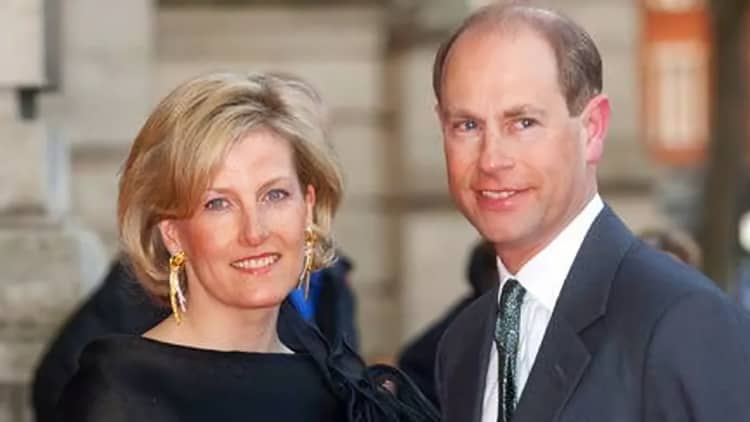Luis Ayllón
The Spanish Government yesterday protested to the UK Government about the visit of the Earl and the Countess of Wessex to Gibraltar from 7 to 9 June to take part in the commemoration of the 70th anniversary of Queen Elizabeth II’s accession to the throne, The Diplomat has learnt from diplomatic sources.
The aforementioned sources did not specify whether the protest was made through a note verbale or whether the UK Ambassador in Madrid was summoned to the Ministry of Foreign Affairs, but they assured that this Department had informed the British authorities of its displeasure at the announced visit to the Rock by the youngest son of Elizabeth II, Prince Edward of England and his wife, on the occasion of the Queen’s Platinum Jubilee.
Spain”, said the sources, “considers that the visit is not appropriate in the context of the negotiation process for a future EU-United Kingdom Agreement on Gibraltar and the bilateral agreements between Spain and the United Kingdom that are necessary for the implementation of this Agreement, which will define new relations between Gibraltar and the European Union”.
The announcement of the trip was made public on 31 March, but until now the Spanish government had not commented on the visit, a delay that, in some media, has been interpreted as a change in Spain’s attitude, at a time when the future of the relationship with Gibraltar is pending negotiations between the European Commission and the United Kingdom, following Brexit.
This idea was also helped by the fact that days after the announcement of the visit of the Earl of Wessex, Queen Letizia travelled to the UK to attend the opening of the Spanish Gallery, the first gallery in the UK dedicated to the art, history and culture of Spain, together with the Prince of Wales.
Exactly ten years ago, the Government, then headed by Mariano Rajoy (PP), protested to the UK about the visit to Gibraltar by the same Earl of Wessex, then to celebrate the Queen’s Diamond Jubilee, the 60th anniversary of her accession to the Throne. In addition, Queen Sofia’s planned visit to London to attend the Diamond Jubilee celebrations was cancelled shortly afterwards.
The Executive, however, has finally taken the decision to lodge a formal protest with London, maintaining the line that all Spanish governments have taken when members of the British Royal Family have visited the colony, including the stay of Prince Charles and Lady Di on their wedding trip in 1981, which meant that the King and Queen of Spain did not attend the wedding ceremony.
Subsequent trips by members of the British Royal Family and the ensuing protests followed, such as, in October 1993 and July 1995, for stays by Duke York, Prince Andrew, the third son of Elizabeth II. In May 1996 it was the Queen’s husband, the Duke of Edinburgh, who made a working visit for the Duke of Edinburgh Awards, and in 1998 the Duke of Kent, the Queen’s cousin, the Duke and Duchess of Gloucester and Princess Alexandra visited the Rock. In 2001, the government of José María Aznar (PP) also protested another visit by Prince Edward of England to the colony; and that of José Luis Rodríguez Zapatero (PSOE) did the same when, in June 2004, Princess Anne of England visited the Rock to commemorate the 300th anniversary of the British conquest of Gibraltar; and then in February 2009, when she returned to inaugurate a medical centre that bears her name on the Rock.
The Spanish protests have not, in any case, had the slightest effect on either the Crown or the British governments, which continue to schedule such visits whenever they see fit, an attitude that is applauded by the Gibraltarian authorities. On 31 March last, after the announcement of the new visit by the Earls of Wessex, the colony’s Chief Minister, Fabian Picardo: “The visit of the Earl and Countess will be a highlight for us in the year of Her Majesty The Queen’s Platinum Jubilee and will be an opportunity for the People of Gibraltar to demonstrate once again their deep and abiding affection for our Sovereign and the Royal Family as the embodiment of British sovereignty of Gibraltar”.







